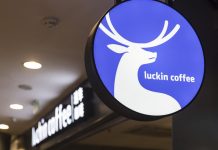
British retailer Marks & Spencer has reported that its profits fell in the first half of the financial year amidst poor sales in its clothes and home goods.
Marks & Spencer posted pre-tax profits of £176.5 million, down by 17% as total sales fell by 2.1% to £4.86 billion due to weak demand for its clothes and home goods. Sales in clothing and home products decreased by 5.5% during the six months ending September 30, which was worse than the 4.3% decline forecast.
Despite the reported declines, the company's shares went up by 6.3% at 193.94 pence in early morning FTSE 250 trading.
Tight competition in fashion
In the fashion segment, Marks & Spencer is competing with giants like Primark on the High Street and Asos on the internet and the company admitted that its business "has historically been too slow to market" and had "too many slow-moving lines".
M&S aims to ensure the availability of its products in all sizes, and faster restocking of popular and fast-selling items in stores. The company is also planning to launch slimmer cuts in clothing designs, aimed at a "family market".
However, retail expert Richard Hyman said: I think Marks and Spencer customers are not interested in price, as much as relevance. Making clothes cheaper is not the answer. When they talk about this season's offering, they are talking about a matter of weeks. The general outlook for Christmas trading is not looking very good across the trade."
Food business potential?
Meanwhile, the retailer's like-for-like sales in food went up by 0.9%, higher than the expected 0.3% increase. In February, Marks & Spencer formed a joint venture with Ocado, purchasing 50% of its retail business for £750 million.
"I can't see the central logic of the Ocado deal. I don't think they have to be online in food at all. Online [food retailing] in the UK is 7% of the market, suggesting people are not clamouring to buy food online," Hyman argued.






